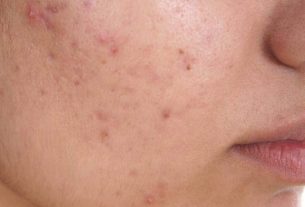To help your child lose weight, the most important thing is to reduce the amount of sweets and fat in their diet and, at the same time, increase the amount of fruits and vegetables they eat every day.
Generally, children and teenagers lose weight more easily when their parents and siblings also get involved and eat healthier, as this prevents the child or teenager from feeling excluded, making it easier to follow the diet.
However, a child only needs to lose weight if their weight is above the recommended weight for their age, height and stage of development, and it is not advisable to start a very restrictive diet, nor give medication, without medical or nutritionist advice, as this may negatively affect the development. See how to know if your child is over the recommended weight.
Tips to help your child lose weight
Some simple tips to help your child lose weight are:
1. Every family needs to eat well
The motto should be if the child or teenager needs to lose weight, then everyone in the house should adopt the same diet, because this makes it easier to stick to the diet. Furthermore, children and adolescents have a habit of following their parents’ examples, especially in simple everyday things, such as eating.
2. Don’t make a separate meal for the child
As everyone in the house needs to eat well, there is no need to prepare separate meals for the child and the rest of the family. Eating an adequate and healthy diet should not be a “punishment”, but rather a habit. Therefore, if everyone in the house gets used to a healthy and balanced diet, it will be easier to control the child’s weight in the long term.
See 3 simple steps to re-educate your diet and start eating healthier.
3. Set an example by consuming healthy foods
Older people are the sources of inspiration for younger people and that is why parents and siblings, uncles and grandparents also need to collaborate by consuming fruits, vegetables and salads daily, avoiding fast foodfatty foods, fried foods and stuffed biscuits.
4. Don’t have high-calorie foods at home
Since no one can eat foods rich in fat and sugar, the best strategy is to always have very healthy foods in the refrigerator and in the cupboards because this way it is easier not to give in to temptation.
5. Eat most meals at home
Eating out can be a problem, because we usually shopping malls it’s easier to find fast food and foods that do not help with the diet. Therefore, ideally, most meals should be prepared at home, with healthy and nutritious ingredients.
6. Prefer cooked or grilled foods
To cook food well, with less fat, ideally it should be boiled or grilled. Fried foods should be left out and should be eliminated.
7. Use aromatic herbs to season
Food should be prepared simply, preferably adding aromatic herbs such as oregano, parsley, coriander or rosemary, for example. It is important to avoid using bouillon cubes, excess salt or sauces to add flavor to food. This is a simple and very practical way to reduce the amount of calories in your food and make it healthier.
8. Do regular outdoor activities
Regular physical exercise that the child enjoys, such as cycling, playing football or playing in the pool, should be repeated regularly, together with all or some family members. This way, it is easier for the child to feel more motivated and not give up on losing weight.
9. Avoid letting your child spend too much time on screens
It is important to avoid letting the child spend too much time on screens, that is, watching television, on the computer or using electronic devices, for example, as these situations generate less energy expenditure and reduce the willingness to practice physical activities.
10. Sleep well
Sleeping well also helps children stay fit and reduce body weight. It is also indicated that children who do not sleep within the recommended hours are more likely to be overweight. Furthermore, lack of sleep can also affect your mood and behavior.
Watch the video to see other tips that may be useful:
Bibliography
- ÁLVAREZ María Luisa et al. Nutrition in pediatrics . 2nd. Caracas, Venezuela: Cania, 2009. 583-584.

Sign up for our newsletter and stay up to date with exclusive news
that can transform your routine!
Warning: Undefined array key "title" in /home/storelat/public_html/wp-content/plugins/link-whisper-premium/templates/frontend/related-posts.php on line 12
Warning: Undefined array key "title_tag" in /home/storelat/public_html/wp-content/plugins/link-whisper-premium/templates/frontend/related-posts.php on line 13





